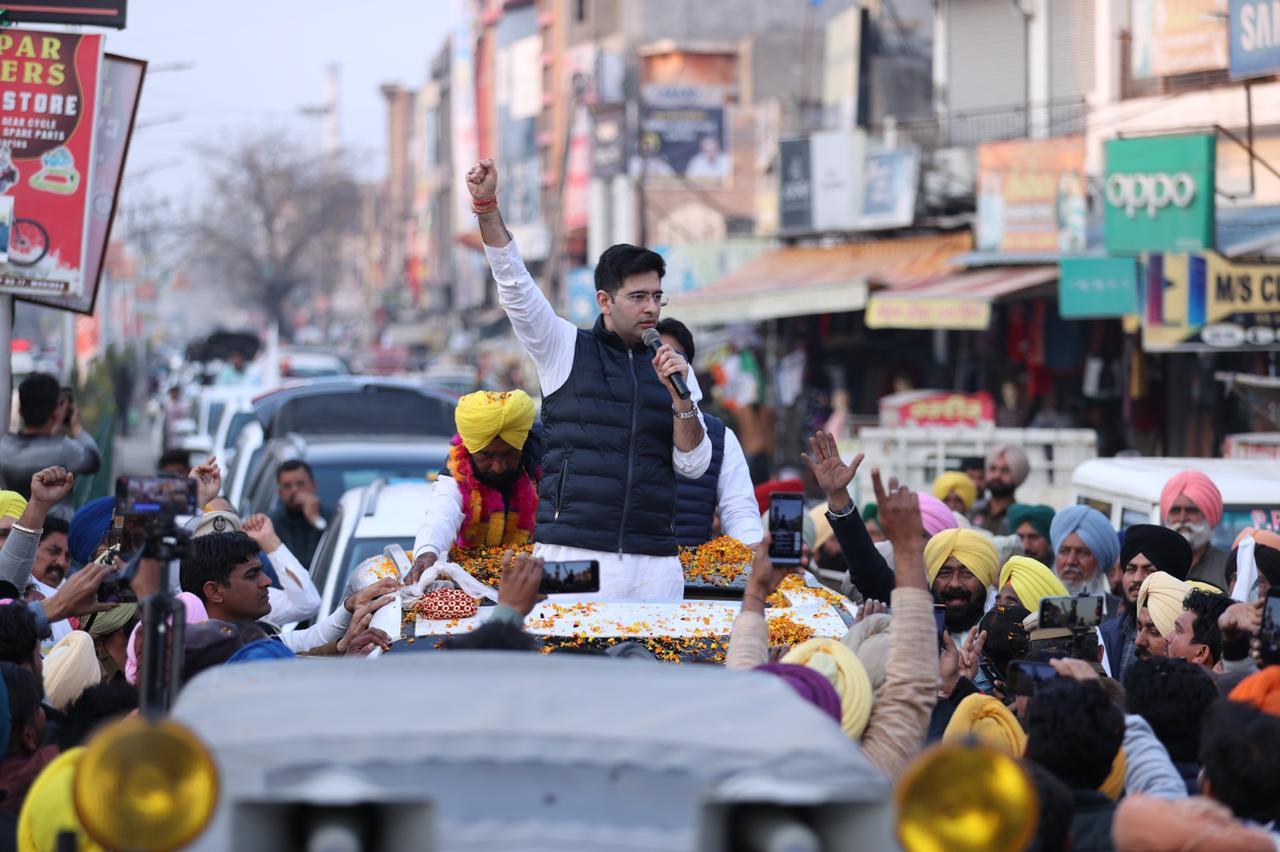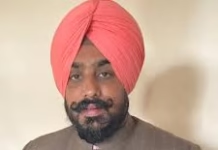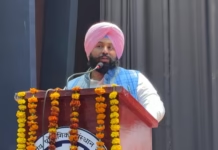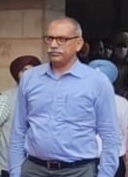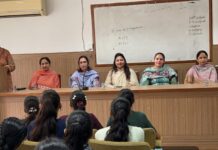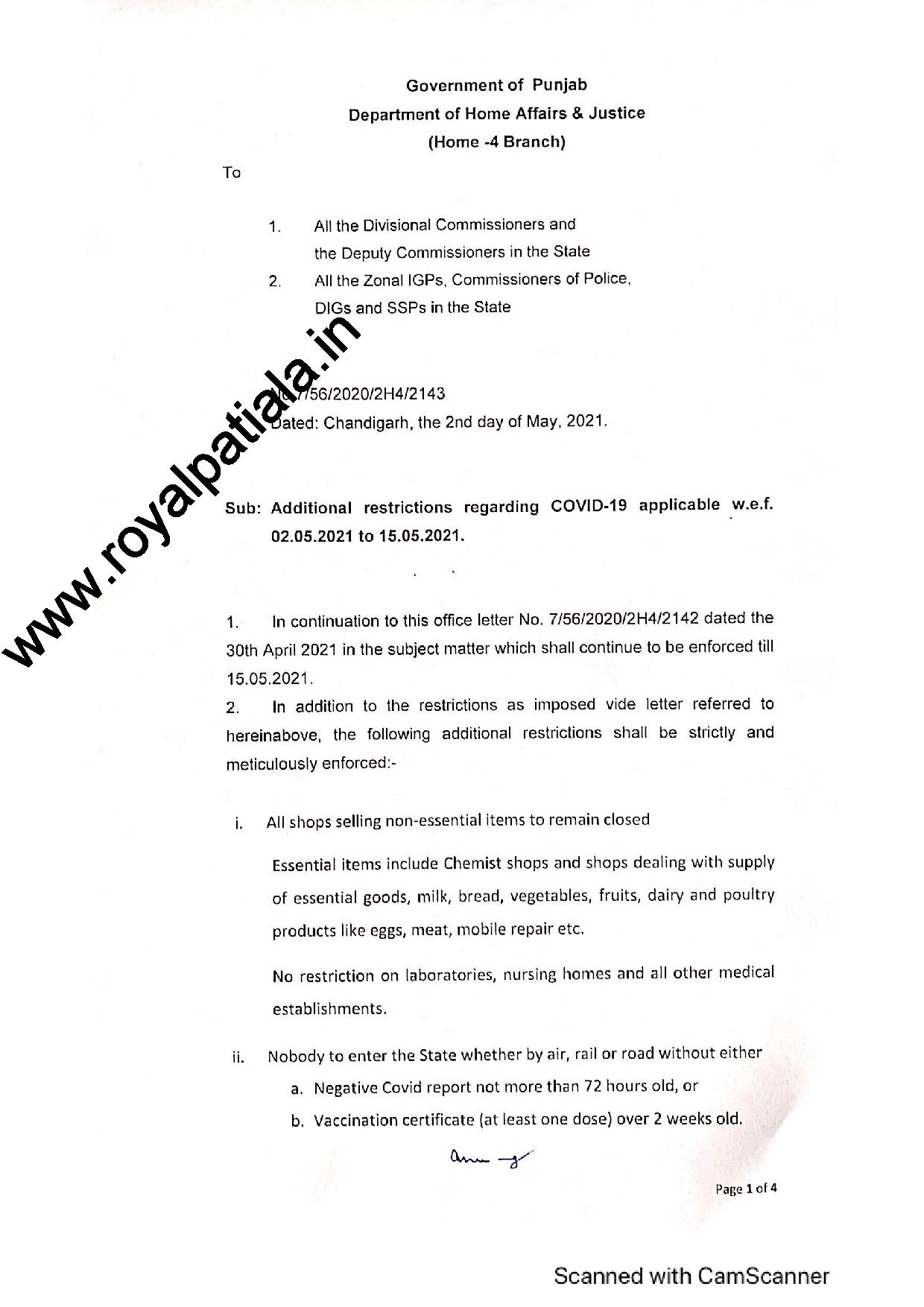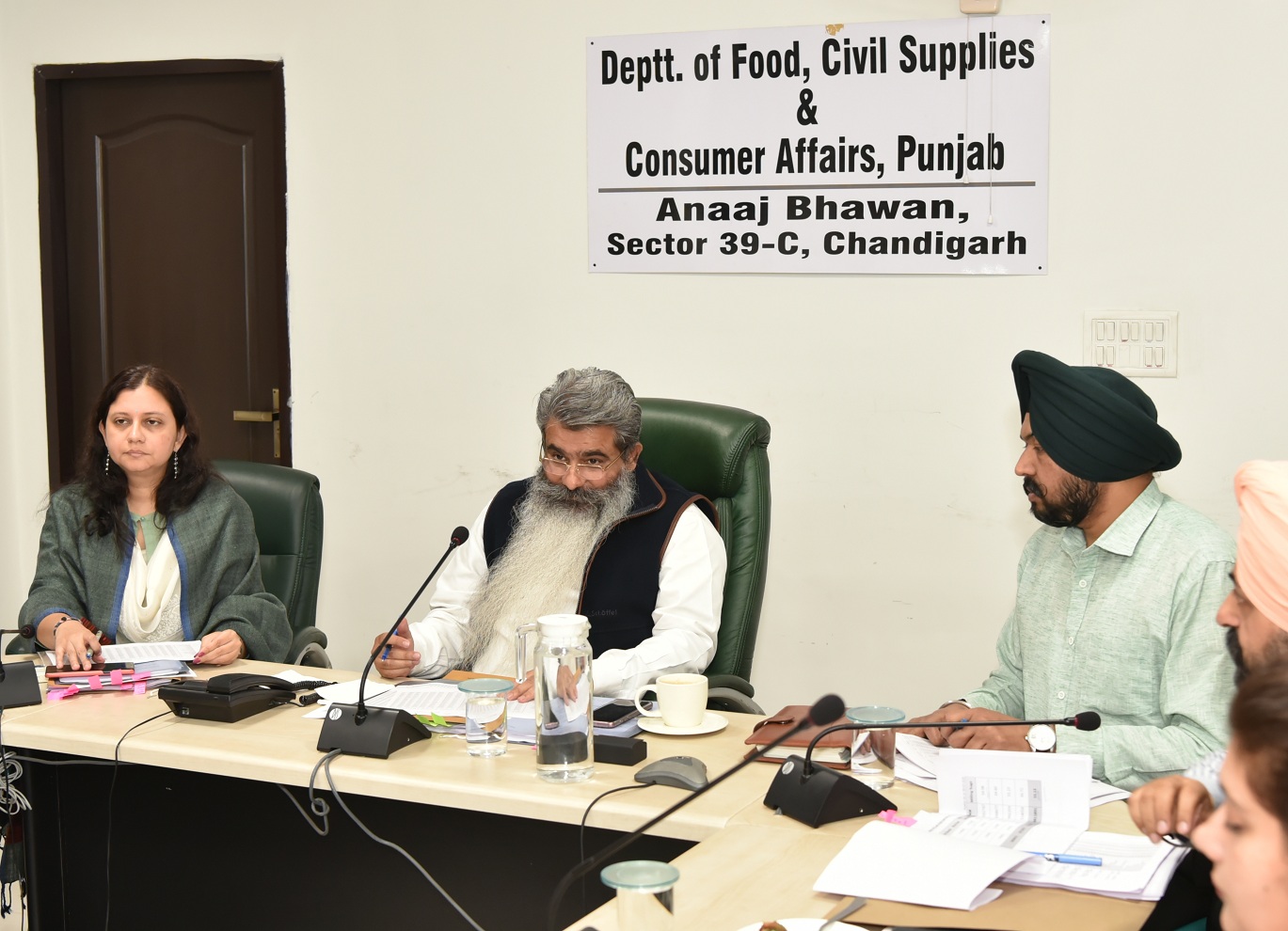Petition sent to President of India over Raghav Chadha’s disqualification as MP – Hemant Kumar
Kanwar Inder Singh/ royalpatiala.in
The appointment of Raghav Chadha, senior Aam Aadmi Party (AAP) leader and Member of Parliament in Rajya Sabha from the State of Punjab as Chairman of Advisory Committee (AC) by Chief Minister of Punjab, Bhagwant Mann, on July 11 has, apart from inviting political criticism by opposition parties in the State, also come under a sort of legal scanner.
An Advocate at Punjab and Haryana High Court, Hemant Kumar, today sent a letter-petition under Article 103(1) of Constitution of India addressed to President of India for referring it further to the Election Commission of India (ECI) under Article 103(2) so that the latter may duly examine the matter and report its opinion to the former pertaining to possible disqualification under Article 102(1)(a) of Constitution of India of Raghav Chadha, Member of Council of States (Rajya Sabha) from the State of Punjab on account of his appointment as Chairman of Advisory Committee (AC) by the Government of Punjab since the same amounts to holding of an Office of Profit by aforementioned Member of Parliament (M.P.) and such Office of Profit till date has not been declared by Parliament by law not to disqualify its holder.
While quoting Article 102(1)(a) of Constitution of India asserts, the Advocate asserts that Member of either House of Parliament can be disqualified as such if he holds any office of profit under the Government of India or the Government of the State other than an office declared by Parliament by law not to disqualify its holder.
He further told that in pursuance of above Article, a law namely Parliament (Prevention of Disqualification) Act, 1959 was enacted by Parliament which has been amended several times in last six decades and which specifies explicit names and designations of certain offices both under the Government of India as well as Government of different States in the country the holding of whom by MPs would not disqualify them as Members of Parliament.
Hemant further elaborated that Section 3(h) of aforementioned 1959 Act excludes the Office of Chairman or member of a committee (whether consisting of one or more members), set up temporarily for the purpose of advising the Government or any other authority in respect of any matter of public importance or for the purpose of making an inquiry into, or collecting statistics in respect of, any such matter, if the holder of such office is not entitled to any remuneration other than compensatory allowance.
Pertinent that the Advisory Committee (AC) in Punjab has been constituted vide a State Government Notification dated July 6, 2022 as an temporary (adhoc) committee to advise the Government of Punjab on matters of public importance pertaining to Public Administration. The Chairperson and members of ibid Committee are however not entitled to any compensation, remuneration or perks of any kind or nomenclature in respect of such appointment. They shall not even be entitled to payments that are compensatory in nature, including any reimbursements.
Now the question arises if the Office of Chairman of aforesaid Advisory Committee under Government of Punjab would fall within the purview of Section 3(h) of aforementioned 1959 Act so as to exclude/exempt the holder of aforesaid Office from disqualification which otherwise operates under Article 102(1)(a) of Constitution of India.

Petition sent to President of India over Raghav Chadha’s disqualification as MP – Hemant Kumar asserts that when one thoroughly peruses the aforesaid Notification issued by Government of Punjab, although it terms such constituted Committee as temporary and ad-hoc but it does not specify the tenure of such Committee. However, it mentions that it will serve during the pleasure of the Chief Minister of Punjab.
Hence, one wonders if such a Committee would indeed be temporary in nature or else it would be co-terminus till the tenure of the incumbent Punjab Government (of course subject to the pleasure of the Chief Minister of Punjab) which has come to power only four months ago in the month of March, 2022.
Furthermore, Section 3(h) of 1959 Act clearly mentions a committee set up temporarily for the purpose of advising the Government or any other authority in respect of any matter of public importance or for the purpose of making an inquiry into, or collecting statistics in respect of, any such matter.
However, the Notification issued by Government of Punjab refers to matters (not matter) of public importance pertaining to Public Administration. Hence, there has been usage of plural noun in lieu of singular noun in the aforesaid Notification. Hence, the Advisory Committee as constituted by Government of Punjab does not fall within the purview of purview of Section 3(h) of 1959 Act so as to exclude/exempt the holder of aforesaid Office from disqualification which is otherwise provided under Article 102(1)(a) of Constitution of India
Hemant recalls that when in May, 2004 UPA-1 dispensation headed by Dr. Manmohan Singh, then Prime Minister of India, came to power, immediately thereafter National Advisory Council (NAC) was constituted in June,2004 which was headed by none other than then Congress party President, Sonia Gandhi.
Two years later in March, 2006 in the aftermath of then Rajya Sabha MP from Samajwadi Party, Jaya Bachchan, getting disqualified on account of her then concurrently holding the post of Chairperson of Uttar Pradesh Film Development Council which was held as Office of Profit firstly by then President of India, on the opinion given by Election Commission of India ( which was later also upheld by Supreme Court of India in May, 2006), days after Jaya’s disqualification in ibid case, Sonia Gandhi also tendered as resignation not only as then MP from Rae Bareli Lok Sabha seat in Uttar Pradesh but also as Chairperson of NAC. Actually, BJP and certain opposition parties then raised hue and cry over Sonia’s disqualification also as MP since NAC was labelled as Office of Profit.
Meanwhile, both Jaya and Sonia got re-elected to Rajya Sabha and Lok Sabha in next few months after their disqualification and resignation respectively.
However, in Aug, 2006 the Parliament amended Section 3 of 1959 Act by incorporating new sub-section 3(ad) which specifically excluded the office of the Chairperson of the National Advisory Council as constituted by the Government of India in the Cabinet Secretariat on May 31, 2004. However, Sonia Gandhi re-assumed the Chairperson of NAC only in March, 2010 and she remained as such till May, 2014 when UPA-2 Government was voted out of power.
Be that as it may, the recently constituted Advisory Committee by Government of Punjab seems to be akin to/on lines of then Sonia Gandhi headed NAC during the Manmohan Singh led two successive UPA regimes and since the Office of Chairperson, NAC had to be specifically included in the 1959 law via an Amendment Act of Parliament in Aug, 2006 so as to grant statutory immunity to Sonia Gandhi from being disqualified as MP on account of her holding such Office, then perhaps the same yardstick should also apply in case of Raghav Chadha led Advisory Committee, quips Hemant.
July 12,2022

